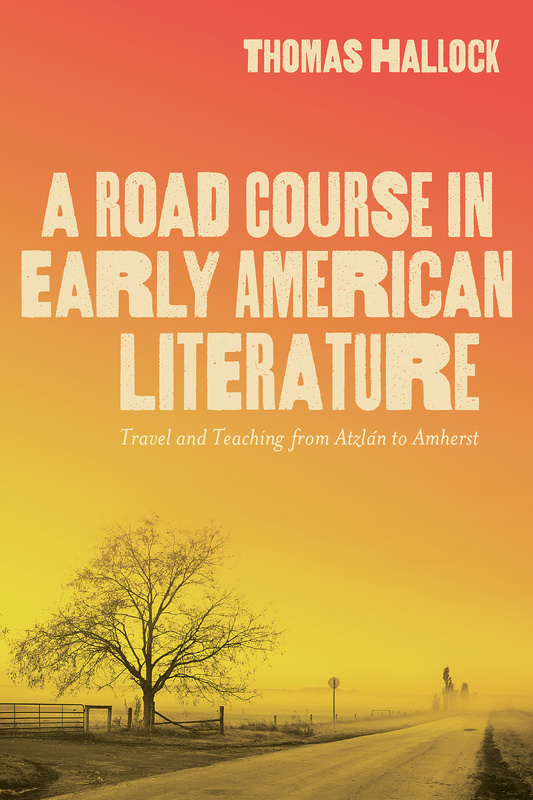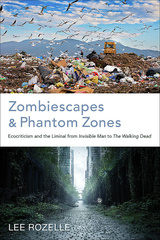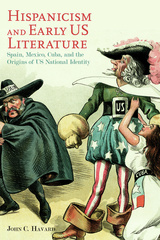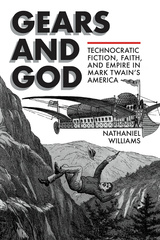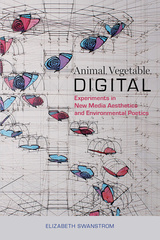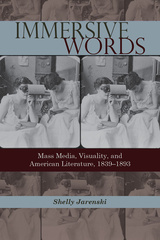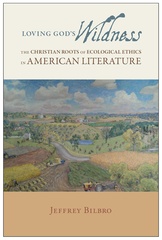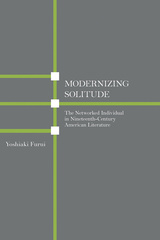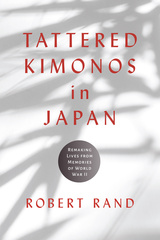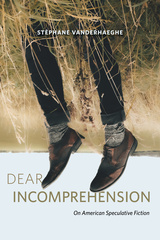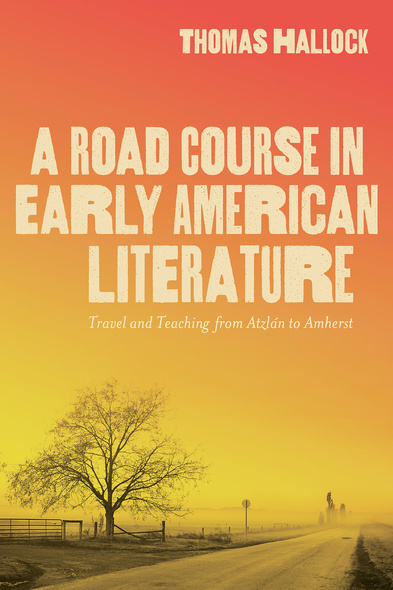
232 pages, 6 x 9
20 B&W figures - 2 maps
Paperback
Release Date:15 Apr 2024
ISBN:9780817361648
Hardcover
Release Date:23 Feb 2021
ISBN:9780817320836
A Road Course in Early American Literature
Travel and Teaching from Atzlán to Amherst
University of Alabama Press
Essays that fuse literary scholarship and personal travelogue to explore American identity
A Road Course in Early American Literature: Travel and Teaching from Atzlán to Amherst explores a two-part question: what does travel teach us about literature, and how can reading guide us to a deeper understanding of place and identity? Thomas Hallock charts a teacher’s journey to answering these questions, framing personal experiences around the continued need for a survey course covering early American literature up to the mid-nineteenth century.
Hallock approaches literary study from the overlapping perspectives of pedagogue, scholar, unrepentant tourist, husband, father, friend, and son. Building on Ralph Waldo Emerson’s premise that there is “creative reading as well as creative writing,” Hallock turns to the vibrant and accessible tradition of American travel writing, employing the form of biblio-memoir to bridge the impasse between public and academic discourse and reintroduce the dynamic field of early American literature to wider audiences.
Hallock’s own road course begins and ends at the Lowcountry of Georgia and South Carolina, following a circular structure of reflection. He weaves his journey through a wide swath of American literatures and authors: from Native American and African American oral traditions, to Wheatley and Equiano, through Emerson, Poe, and Dickinson, among others. A series of longer, place-oriented narratives explore familiar and lesser-known literary works from the sixteenth-century invasion of Florida through the Mexican War of 1846–1848 and the American Civil War. Shorter chapters bridge the book’s central themes—the mapping of cognitive and physical space, our personal stake in reading, the tensions that follow earlier acts of erasure, and the impossibility of ever fully shutting out the past.
Exploring complex cultural histories and contemporary landscapes filled with ghosts and new voices, this volume draws inspiration from a tradition of travel, place-oriented, and literature-based works ranging from William Carlos Williams’s In the American Grain and Jack Kerouac’s On the Road to Alice Walker’s In Search of Our Mother’s Gardens, Wendy Lesser’s Why I Read: The Serious Pleasure of Books, and Rebecca Mead’s My Life in Middlemarch.
An accompanying bibliographic essay is periodically updated and available at Hallock’s website: www.roadcourse.us.
A Road Course in Early American Literature: Travel and Teaching from Atzlán to Amherst explores a two-part question: what does travel teach us about literature, and how can reading guide us to a deeper understanding of place and identity? Thomas Hallock charts a teacher’s journey to answering these questions, framing personal experiences around the continued need for a survey course covering early American literature up to the mid-nineteenth century.
Hallock approaches literary study from the overlapping perspectives of pedagogue, scholar, unrepentant tourist, husband, father, friend, and son. Building on Ralph Waldo Emerson’s premise that there is “creative reading as well as creative writing,” Hallock turns to the vibrant and accessible tradition of American travel writing, employing the form of biblio-memoir to bridge the impasse between public and academic discourse and reintroduce the dynamic field of early American literature to wider audiences.
Hallock’s own road course begins and ends at the Lowcountry of Georgia and South Carolina, following a circular structure of reflection. He weaves his journey through a wide swath of American literatures and authors: from Native American and African American oral traditions, to Wheatley and Equiano, through Emerson, Poe, and Dickinson, among others. A series of longer, place-oriented narratives explore familiar and lesser-known literary works from the sixteenth-century invasion of Florida through the Mexican War of 1846–1848 and the American Civil War. Shorter chapters bridge the book’s central themes—the mapping of cognitive and physical space, our personal stake in reading, the tensions that follow earlier acts of erasure, and the impossibility of ever fully shutting out the past.
Exploring complex cultural histories and contemporary landscapes filled with ghosts and new voices, this volume draws inspiration from a tradition of travel, place-oriented, and literature-based works ranging from William Carlos Williams’s In the American Grain and Jack Kerouac’s On the Road to Alice Walker’s In Search of Our Mother’s Gardens, Wendy Lesser’s Why I Read: The Serious Pleasure of Books, and Rebecca Mead’s My Life in Middlemarch.
An accompanying bibliographic essay is periodically updated and available at Hallock’s website: www.roadcourse.us.
Amidst the multiple crises literary studies faces—from the adjunctification of the professoriate to reckoning with the ongoing consequences of a racist and oppressive past to the potential cataclysm of climate change—Hallock asks what it might mean to teach early American literature. He provides no easy answers, but he models the kind of curiosity, erudition, and humility that continue to expand the pedagogical terrain. Essential.’
—CHOICE
‘A Road Course in Early American Literature is a deeply, original, brilliant, entertaining book, brimming with the author’s enthusiasm for his subject—American writing from the conquest of Tenochtitlan to the end of the Civil War—and for what he has learned in decades of teaching.’
—Christoph Irmscher, author of Max Eastman: A Life and Louis Agassiz: Creator of American Science
'Hallock approaches texts as invitations to examine rather than simply to enshrine. Hallock supports his discussions with meticulous research and extensive historical context.' —American Literary History
Thomas Hallock turns a scholarly imagination and unblinking eye on the crossroads of literature and place, traveling and trespassing in order to understand American history and what it wrought in American culture....The upshot of Hallock’s cross-pollinations is this, a hybrid with novel traits, significant vigor, and a powerful heartbeat. I’m very impressed.’
—Janisse Ray, author of Ecology of a Cracker Childhood
‘Thomas Hallock’s guide through the white-washed, buried, and forgotten stories of early American literature is a cross between your favorite college English class and your life’s best road trips. Revealing his own trespasses both literal and literary, Hallock leads his readers across the troubled waters of American memory to find shared ground in the transformative power of words. The essays in Road Course are essential journeys for our time.’
—Cynthia Barnett, author of Mirage, Blue Revolution, and Rain
‘How does one come to a more unified understanding of the Americas as a continent of interconnected places and as a changing historical reality over time? Neither geography nor history—nor literature, for that matter—can be ends in themselves, but must be part of a larger educational framework. How can the connections among these areas of study be better understood? How can one best use personal experience to inform one’s approach? Where does one begin? Hallock’s Road Course offers one possible place to start.’
—Review of International American Studies
'Hallock’s moral engagement with literature, history, educational institutions, students, colleagues, and family comes through in just about every chapter, adding to the urgency of his insightful thinking about connections between the art of teaching early American literature and the art of travel.'
—Early American Literature
Thomas Hallock is professor of English at the University of South Florida St. Petersburg. He is author of From the Fallen Tree: Frontier Narratives, Environmental Politics, and the Roots of a National Pastoral, 1749–1826 and coeditor of Travels on the St. Johns River: John and William Bartram; William Bartram, the Search for Nature’s Design: Selected Art, Letters, and Unpublished Writings; and Early Modern Ecostudies: From the Florentine Codex to Shakespeare.

